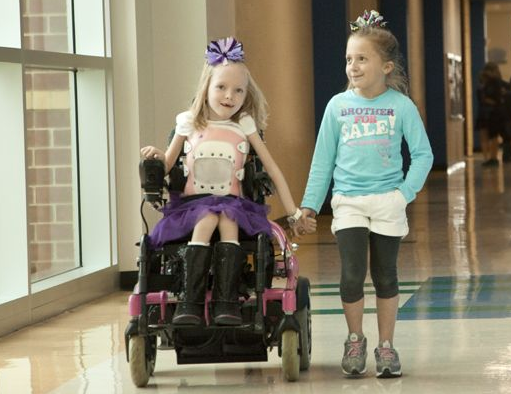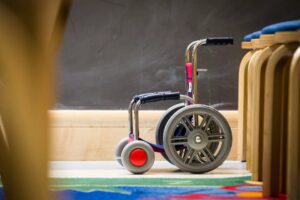
Differently abled is a term used to describe children who have physical, mental, or developmental disabilities that impact their daily lives. This term recognizes that every individual has unique abilities and challenges and aims to shift the focus from their limitations to their strengths and potential. It emphasizes that all children, regardless of their abilities, have the right to live fulfilling lives and be valued members of their communities.
However, caring for a child with special needs can be a challenging experience. It requires a lot of patience, understanding, and compassion, as they need extra care and assistance to thrive and do tasks that others do effortlessly.
Here are some tips for taking care of differently-abled kids and helping them lead healthy, satisfied, and fulfilling lives:
- Understand their needs
The first step in caring for a differently-abled child is understanding their specific needs. It may involve researching their condition, talking to medical professionals, and consulting with specialists. Cerebral palsy, cleft lip and palate, cystic fibrosis, Down’s syndrome, Erbs palsy, and other conditions are common among children with exceptional needs.
It’s essential to clearly understand what your child can and can’t do, what limits them, and how you can help. For instance, children with cerebral or Erbs palsy may have difficulty with movement, coordination, balance, and fine motor skills. They may have sensory sensitivities, such as light, sound, or touch. Knowing these needs can help you cater to their mobility, strength, and coordination through physical therapy. In short, it can help you tailor your caregiving approach and ensure that you can meet their needs effectively.
2. Support their interests and hobbies
Supporting the interests and hobbies of differently-abled children is an essential part of their care and development. When children with disabilities engage in activities they enjoy, they experience a sense of accomplishment and pride, which can improve their self-esteem and confidence.
Engaging in shared interests and hobbies can help children with disabilities build relationships and social connections, which can be particularly important for children with communication difficulties. They can also develop new skills, such as coordination and hand-eye coordination.
Keep in mind that each child with a disability is unique and has their own set of interests and hobbies. You can encourage and support whatever their passions are, whether music, art, sports, or vice versa.
3. Provide accessibility and assistive devices
Providing accessibility and assistive devices can be a crucial part of caring for differently-abled children, helping them to overcome obstacles and participate more fully in daily life.
Assistive devices, such as wheelchairs, walkers, and crutches, can help children with mobility issues move around conveniently and safely. This increased mobility can also improve the child’s independence and self-esteem.
While communication or augmentative and alternative communication (AAC) devices can help children with communication difficulties express themselves and participate more fully in conversations.
You can also make physical modifications to the home or school environment, such as adding ramps or installing grab bars to make it easier for the child to move around.
4. Maintain hygiene and comfort
Regular bathing, cleaning, and grooming can help prevent the spread of infections and skin irritation, especially for children with limited mobility or those confined to a wheelchair or bed for extended periods.
Providing a clean and hygienic environment can help promote better health and prevent the spread of illnesses, which is especially important for children with compromised immune systems.
It also impacts a child’s emotional well-being as it helps reduce discomfort and pain, which can be a constant issue for children with physical disabilities.
5. Foster independence
While it’s essential to provide your child with the care and support they need, it’s also crucial to encourage them to be independent to become more self-sufficient and autonomous as they grow older. Doing so can include teaching them simple tasks like dressing, brushing their teeth, washing their face, and combing their hair to promote good hygiene.
You can also let them prepare meals or snacks, such as pouring a glass of milk or making a sandwich, which can help them be independent.
Besides, you can assist them with household tasks, such as picking up toys or putting laundry away and provide a sense of accomplishment.
By participating in daily activities, children with special needs can feel more integrated and involved in their community, improving their decision-making skills and taking control of their own lives.
6. Provide opportunities for social interaction
Socializing is crucial for a child’s development, and it’s no different for special-needs children. Interacting with others can help build their communication skills, improve self-esteem, and provide a sense of belonging.
By participating in social activities, such as playing with children in the neighborhood or a park, attending events, joining a club, and enrolling in a specialized program, children with special needs can form relationships and make new friends. This can improve their overall well-being.
Socializing can also help differently-abled children learn about different perspectives and experiences. It can broaden their understanding of the world and improve their ability to navigate social situations.
7. Use appropriate language
Children with disabilities often face stigma and discrimination, and the language used to describe them can reinforce these negative attitudes. Using derogatory terms or labels can further marginalize these children and contribute to their shame or embarrassment.
On the other hand, using inclusive language can help promote a positive self-image and increase self-esteem. It is better to use words that are respectful and non-stigmatizing and to avoid using language that is condescending or dismissive.
For example, instead of saying “a disabled child,” you can say “a child with a disability.” Also, instead of referring to a child as “wheelchair-bound,” you can say “a child who uses a wheelchair.”
8. Recognize and respect their strengths
Each child has unique abilities and talents, and it is essential to acknowledge and nurture these strengths to help them build conviction and self-esteem. When children are allowed to build on their strengths, they are more likely to develop a positive self-image and feel competent in achieving their goals.
In addition, recognizing the strengths of differently-abled children can also help to build a more inclusive and supportive environment.
Conclusion
Caring for differently-abled children is a noble cause and requires a compassionate and supportive approach. With the correct one, you can help them realize their full potential and succeed in every trial life throws in their direction.


